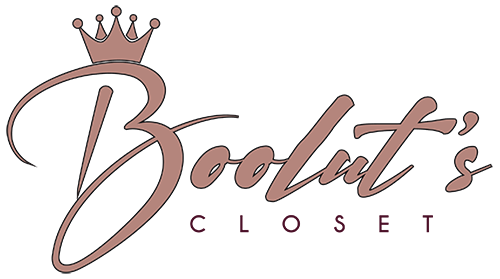
The Best Ways to Deposit Money: A Comprehensive Guide
When it comes to managing your finances, understanding the best ways to deposit money is essential for everyone. Clicking the right buttons and knowing where to place your funds can make a significant difference in your financial health. Whether you are depositing cash into a bank account, funding an online wallet, or financing a gaming account like Best ways to deposit money betano apuestas, knowing the available options is crucial.
1. Traditional Bank Deposits
One of the most common methods for depositing money is through traditional bank deposits. This method is widely used for its simplicity and security. You can deposit cash or checks directly into your bank account at a branch or through an ATM. Many banks also offer mobile deposit options that allow you to deposit checks by taking a photo with your smartphone. If you prefer face-to-face interactions, visiting a local bank branch is a reliable choice.
Pros of Traditional Bank Deposits
- High security and trustworthiness.
- Availability of personal assistance.
- Access to a wide range of services beyond deposits.
Cons of Traditional Bank Deposits
- Possible fees associated with certain types of deposits.
- Limitation on deposit hours based on branch availability.
2. Online Bank Transfers
With the rise of digital banking, online bank transfers have become increasingly popular. This method allows you to move money between accounts or deposit funds directly into your bank account using your bank’s online portal or mobile app. It’s convenient and often instantaneous, making it a preferred choice for many users.
Pros of Online Bank Transfers
- Fast and efficient transfers.
- Accessible 24/7 from any location.
- Often free or minimal fees involved.
Cons of Online Bank Transfers
- Requires a stable internet connection.
- Potential for online security breaches if not careful.
3. E-Wallets

E-wallets are a modern and increasingly popular way to deposit money. Services like PayPal, Skrill, and Neteller allow users to deposit funds online securely. These platforms not only make it easy to deposit money but also facilitate quick transactions in various online services, including shopping and gambling.
Pros of E-Wallets
- Convenience and ease of use.
- Fast transactions.
- Added layer of security for online payments.
Cons of E-Wallets
- Fees can be associated with certain transactions.
- Not all online platforms accept every e-wallet service.
4. Mobile Payment Apps
In the current digital age, mobile payment apps provide a seamless way to manage your funds on the go. Applications like Venmo, Cash App, and Zelle allow users to send and receive money instantly, making them ideal for everyday transactions. These apps have become popular, especially among younger generations, for their simplicity and quick transfer capabilities.
Pros of Mobile Payment Apps
- Fast and easy to use for peer-to-peer transactions.
- Often instant, with no waiting period for funds to clear.
- Rewards and cashback options are sometimes available.
Cons of Mobile Payment Apps
- Security concerns over app usage.
- Potential for fees on instant transfers.
5. Cryptocurrency
As cryptocurrency continues to gain traction, depositing money using digital currencies like Bitcoin, Ethereum, or Litecoin has become more accessible. Many online platforms now accept cryptocurrency for various transactions. It offers decentralized, fast, and often low-cost transactions, making it an attractive option for tech-savvy users.
Pros of Cryptocurrency Transactions
- Fast transaction times compared to traditional banking.
- Low fees for transferring funds.
- Decentralized nature increases privacy.

Cons of Cryptocurrency Transactions
- Price volatility can affect the value of deposits.
- Less regulation may introduce risks for users.
6. Prepaid Debit Cards
Prepaid debit cards offer a straightforward way to deposit money without having a traditional bank account. You can load cash onto these cards and use them anywhere debit cards are accepted, making it a versatile option. They are especially useful for those who want to manage spending by limiting the amount loaded onto the card.
Pros of Prepaid Debit Cards
- Great budgeting tool to avoid overspending.
- No bank account needed.
- Widely accepted for purchases and online transactions.
Cons of Prepaid Debit Cards
- Fees can be associated with card usage and maintenance.
- Limited protection against fraud compared to credit cards.
7. Cash Deposits
Cash remains one of the oldest and most straightforward methods of depositing money. Despite the trend toward digital, cash is still accepted everywhere. You can deposit cash directly into bank branches, ATMs, and retail locations that offer banking services. This option appeals to those who prefer tangible currency over digital alternatives.
Pros of Cash Deposits
- No need for technology or internet connection.
- Immediate access to funds once deposited.
- Easy to track spending for budgeting purposes.
Cons of Cash Deposits
- Not suitable for online transactions.
- Safety concerns when carrying large amounts of cash.
Final Thoughts
In our increasingly connected world, the methods for depositing money are diverse and continually evolving. Understanding the best ways to deposit money—whether through traditional banks, online platforms, or innovative tech solutions—empowers consumers to make better choices for their financial well-being. Consider your individual needs and preferences when selecting the most effective method for depositing funds, and don’t hesitate to explore the various options available to you.


